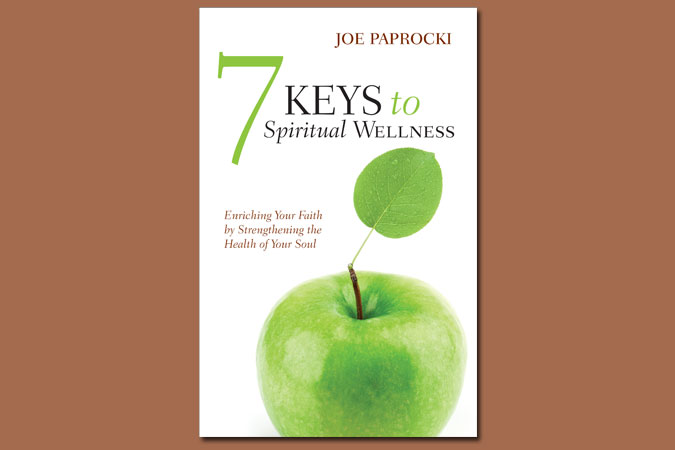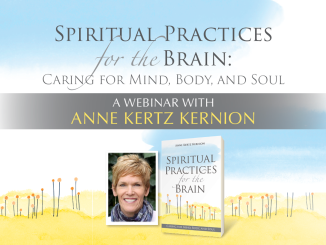The wonderful season of Advent is only a few weeks away! Advent is a season designed for us to focus on our spiritual wellness as we prepare to celebrate the birth of Christ. With that in mind, I humbly recommend my book, 7 Keys to Spiritual Wellness, as part of your Advent reading, along with the following connections to the themes of Advent as found in the Scripture readings for this season.
- See yourself as you really are. Spiritual wellness begins with dismissing any inflated sense of self-importance and taking on an attitude of humility. During the Advent season, we are reminded of the wonderful humility of Mary who, upon learning she would be the Mother of Jesus, responded in great humility: “My being proclaims the greatness of the Lord, my spirit finds joy in God my savior; for he has looked upon his servant in her lowliness.” (Luke 1:46–56 / December 22)
- Actively seek the good of others. We grow in spiritual wellness when we stop comparing ourselves to others and instead actively seek out their good, no longer seeing others as a threat to us but as partners on the journey. St. Paul exhorts us to “accept one another, then, as Christ accepted you, for the glory of God.” (Romans 15:4–9 / Second Sunday of Advent) Likewise, Isaiah speaks of a time when “one nation shall not raise the sword against another.” (Isaiah 2:1–15 / First Sunday of Advent)
- Think before acting. Spiritual wellness is characterized by gentleness and prudence, which lead us to pause and think before impulsively responding with anger that may be unwarranted, excessive, and hurtful. James reminds us to “be patient” and to “not grumble against one another.” (James 5:7–10 / Third Sunday of Advent)
- Hold on loosely. Spiritual wellness is impeded by excessive materialism. Advent is a season that calls us to practice generosity and to live simply. Of course, one of the central figures of Advent is John the Baptist, who embraced a life of simplicity: “John was clothed in a garment of camel’s hair and wore a leather belt around his waist. Grasshoppers and wild honey were his food.” (Matthew 3:1–12 / Second Sunday of Advent)
- Recognize and set limits. We live in an age that dismisses limits and boundaries as confining and prefers an “anything goes” attitude. We miss the fact that limits and boundaries enable us to channel energies much as the banks of a river enable it flow mightily. St. Paul exhorts us to “cast off deeds of darkness” and to “live honorably as in daylight; not in carousing and drunkenness, not in sexual excess and lust, not in quarreling and jealousy.” (Romans 13:11–14 / First Sunday of Advent)
- Seek beauty. Our souls need to be revived by beauty, which explains why, when we go on vacation, we almost always choose a location that abounds in beauty. During the Advent season, we are called to imagine a world that is filled with beauty: “The desert and the parched land will exult; the steppe will rejoice and bloom. They will bloom with abundant flowers and rejoice with joyful song.” (Isaiah 35:1–6 / Third Sunday of Advent)
- Unleash your imagination. Spiritual wellness is characterized by the ability to imagine possibilities where others see none. This great imagination is at the heart of the Prophet Isaiah, whom we listen to throughout Advent as he prods our imaginations to consider a time when “the wolf shall be a guest of the lamb and the leopard shall lie down with the kid; the calf and the young lion shall browse together, with a little child to lead them. The cow and the bear shall be neighbors; together their young shall rest; the lion shall eat hay like the ox. The baby shall play by the cobra’s den and the child lay his hand on the adder’s lair. There shall be no harm or ruin on all my holy mountain.” (Isaiah 11:1–10 / Second Sunday of Advent)
Prepare for Advent with resources from here at Catechist’s Journey. Find more Advent activities and inspiration from Loyola Press.




![O Come Emmanuel - By Einsideln (http://www.e-codices.unifr.ch/en/list/one/sbe/0611) [CC BY-SA 4.0 (https://creativecommons.org/licenses/by-sa/4.0)], via Wikimedia Commons](https://catechistsjourney.loyolapress.com/wp-content/uploads/2017/12/O-Come-Emmanuel-675x450-326x245.jpg)
Leave a Reply